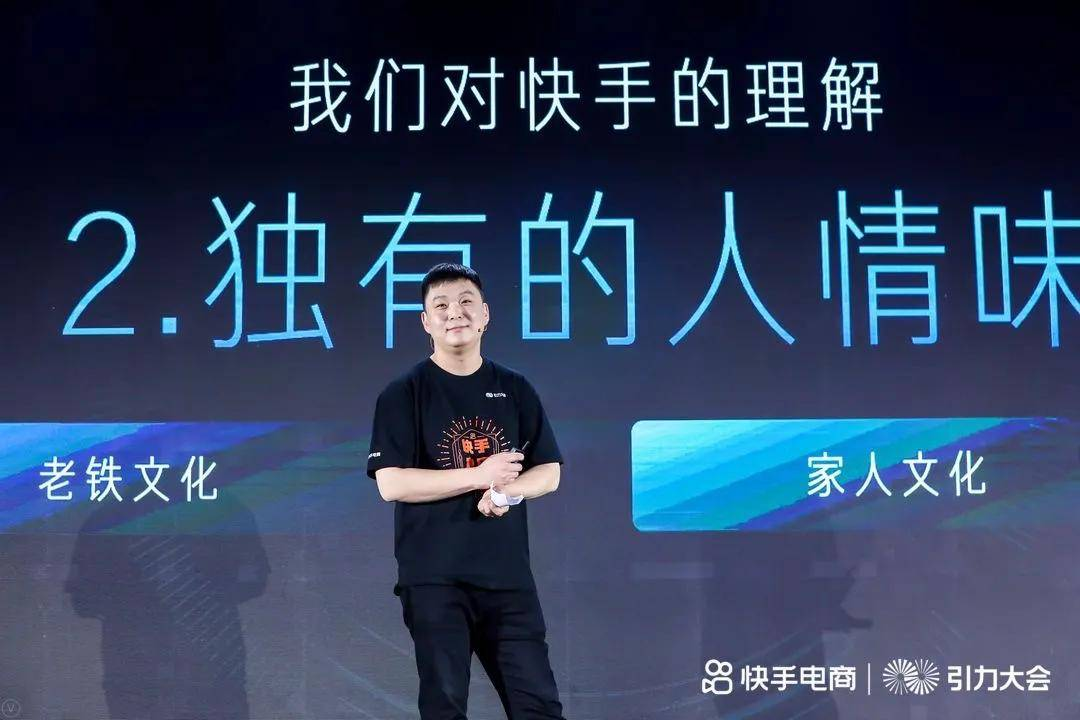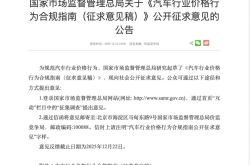KuaiShou's 'Lao Tie Disease'
![]() 12/02 2024
12/02 2024
![]() 594
594
Author: Mantis Observation
A non-S-grade divorce reality show 'Goodbye Lover' suddenly became a hot topic across the internet after its fourth season, sparked by guest Mai Lin's self-sacrificial exposure.
This cyber witch hunt reached its peak when the guest commentator Zhang Quanling discussed several couples on Little Red Book. Disliking Mai Lin became a new form of political correctness. Any attempt to analyze the reasons behind Mai Lin's behavior, including the influence of her husband Li Xingliang, might elicit a binary response: 'May you be surrounded by people like Mai Lin! May your son marry someone like her! May your colleagues be like her! May your friends be like her!'
However, those who recognize that 'crazy women' are created collectively can minimize the creation of 'Mai Lins' around them.
When some netizens indiscriminately vented their hatred of Mai Lin onto those who spoke up for her, official media outlet Morning Post couldn't help but cite Zhang Quanling as an example, stating, 'A former journalist with tens of millions of followers expressed frustration about "secondary injury" from a certain ordinary person. This is not only a fawning response to netizens' emotions but also a ruthless crushing of an ordinary person who may urgently need professional help.'
Ordinary people's lives cannot withstand 'showing off.' Being exposed to a non-daily environment for an extended period and making mistakes that lead to online judgment are inevitable.
The collapse of many grassroots internet celebrities follows a similar logic.
Recently, 'Northeast Rainy Sister' stumbled over sweet potato noodles.
A tough woman from Benxi County who claimed to 'introduce the most authentic rural life' gained tens of millions of followers by portraying herself as a hardworking, simple, and strong Northeast rural woman. Since 2024, her team has conducted 28 live-streaming sales, accumulating over 100 million yuan in sales.
However, she fell from grace due to an incident involving sweet potato noodles. A top-tier internet celebrity plummeted rapidly.
When 'real life' needs to be showcased through 'image creation' for profit, a sign of collapse looms ahead.
How many rural women actually lift large jars or carry iron pots on their shoulders?

'Northeast Rainy Sister' was once called the 'Wolf Warrior version of Li Ziqi.' However, unlike Li Ziqi, who returned after a three-year hiatus and maintained her popularity, 'Northeast Rainy Sister' reinforced her image as a tough rural woman.
Maintaining a persona requires 'showing off.' Under the lens of high-density content performance and live-streaming sales, actions inevitably become distorted when constantly performing for profit.
The internet environment in recent years, as described by Sanbiao, has gradually become accustomed to the absurd antics of internet celebrities. The agenda-setting of the internet has also been directed towards soaring wealth, fluctuations in fame, and vulgar pursuits. Catering to emotions, pursuing production volume, establishing personas, and rapid monetization have made algorithms akin to a never-sleeping factory, continuously producing trending figures with limited shelf lives.
Undoubtedly, internet celebrities' collapses place inescapable responsibility on the platforms that provide them with a stage. However, content regulation is not the focus of this article. This article aims to explore whether short video platforms, which continuously use algorithms to push ordinary people to 'show off' for fame and fortune, still uphold 'aesthetics, values, and original intentions.'
KuaiShou, with a higher risk of collapse
If it weren't for 'Northeast Rainy Sister's' sudden popularity and subsequent collapse, how many people would know where Benxi County is?
On the 'Internet Consumption Map' comprising Beijing, Shanghai, Guangzhou, Shenzhen, provincial capitals, and lower-tier markets, ordinary people rarely pay attention to the names and locations of ordinary counties, regardless of how advanced information is.
Unless a place becomes as famous as Caoxian County, which gained notoriety for its slogan 'Shandong Heze Caoxian, NB666, my baby,' people will remember it.
However, there are 1,299 such small counties scattered across China's vast 9.6 million square kilometers.
If shouting slogans isn't enough, collapsing surely will be.
Benxi County previously gained attention due to 'Northeast Rainy Sister's' popularity. Now, it gains attention because of her collapse.
This Northeastern county, which achieved poverty eradication for 3,620 registered cardholders in 2017, did not become a popular tourist destination due to its 'Geological Museum' and 'China's Maple Leaf Capital' status. Instead, it gained popularity and traffic due to 'Northeast Rainy Sister's' rise and fall on Douyin.
Benxi County certainly does not want this kind of popularity. When the online world labels small counties with simple, pleasant words and generalizes their people as honest and kind, 'Northeast Rainy Sister's' stumble over sweet potato noodles was ill-timed.
However, KuaiShou may face an even greater challenge.
The repeated collapses of top streamers have turned Douyin, a short video platform that 'records beautiful life,' into a live broadcast of 'recording streamer collapses.' However, KuaiShou, with a stronger presence in lower-tier markets, has more ordinary people who cannot withstand 'showing off.'

According to stereotypes, 'Northeast Rainy Sister's' video style should be more popular among KuaiShou's 'Lao Tie' users. Even after her popularity, she expanded her 'Rain Universe' by adopting KuaiShou's distinctive 'master-apprentice' system employed by top streamers.
According to Jiemian News, 'Northeast Rainy Sister' indeed joined KuaiShou when she tried shooting rural life short videos in January 2021. However, after a year of little success, she switched to Douyin in February 2022. This marked the beginning of her rapid rise and subsequent fall on short video platforms.
Therefore, when 'Rainy Sister' fell, Douyin was put on the hot seat, but KuaiShou might not feel relieved; instead, it might sense a crisis. After all, in the fundamental aspect of short video content, KuaiShou, following a 'rural surrounding the city' strategy, gathers more down-to-earth, grassroots ordinary people.
KuaiShou's initial core user group was the lower class, also known as the 'three lows' class: low age, low education, and low income. While some genuinely recorded their simple lives, others sought traffic by pushing the limits, resulting in numerous quirky and outrageous internet celebrities and videos with rough production, excessive special effects, exaggerated content, and even distorted values. For example, hyping up early pregnancies and engaging in 'social shake.'
A reasonable speculation is that 'Northeast Rainy Sister,' who initially failed to gain popularity on KuaiShou, might have produced content that was too generic to attract attention. Even though media reported that she and her apprentices only rented houses in the village and came there to shoot videos and live stream. They weren't recording rural life; they were performing it.
However, how many 'Rainy Sisters' who want to become famous and cash in quickly by 'showing off' their personas will cater to the audience on KuaiShou, which is more inclusive of grassroots users, across 1,299 counties?
Some netizens have long complained that China has the most actors not in Hengdian but on KuaiShou.
Perhaps internet celebrities like 'Northeast Rainy Sister,' who became famous by 'performing rural life,' are nothing special anymore. On KuaiShou, content like '04, already married and pregnant, a year in my in-laws' house,' '05, married to a 17-year-older man, what do I do all day?' '12 years old, 3 years of smoking history' makes up the denominator of KuaiShou's vast lower-tier user base. However, once ignited, they can become 'mines' that 'blow up' KuaiShou.
Many netizens describe KuaiShou as having 'extremely high upper limits and extremely low lower limits.' This year, an internet meme called 'Slow Foot Culture' even emerged to mock some vulgar content on KuaiShou.
Why do many KuaiShou users have 'no lower limits'?
The desire to be seen, resonate, and become famous could be reasons.
When eye-catching content continuously garners attention, lower-tier users without creative abilities or a beautiful life to share but still seeking attention might believe that exaggeration and outrageousness will get them noticed. Imitating and filming similarly can grasp the opportunity to be seen and become famous.
This opportunity could be the fastest path for ordinary people from the lower class to cross social classes and achieve success. Whether it's Xinba, who repeatedly jumps between being banned and making a comeback, or KuaiShou's early internet celebrities like MC Tianyou and Li Mengqi, they either come from rural backgrounds or lack formal education. However, in terms of wealth, they have already achieved remarkable success.
KuaiShou has indeed provided a platform for a large number of ordinary people from the lower class to become KOLs. However, those desperately seeking to be seen and become internet celebrities through outrageous and eye-catching content have also become a hidden concern for KuaiShou's content.
Original intentions cannot overcome reality
For KuaiShou, vulgar content can be avoided through regulation and value guidance. So, why does it keep emerging, leading to thousands of answers on Zhihu to the question, 'Why is KuaiShou annoying?'
It's not that KuaiShou doesn't want to address it; it's that it can't.
From KuaiShou's inception, its founders' original intentions and values aimed to provide a platform for everyone in society to record and express themselves. This is evident from KuaiShou's slogan and algorithm mechanism.
KuaiShou's slogan has evolved from 'Record the World, Record You' to 'See Every Kind of Life' to 'Embrace Every Kind of Life,' gradually increasing in emotional intensity. This basically summarizes KuaiShou's overall values of encouraging average people in society to express themselves. As KuaiShou officially wrote, 'Not everyone can stand at the center of the stage, but there's always a light for them.'
For average people in society, KuaiShou is that light that allows them to be seen and understood.
In terms of the most critical algorithm mechanism, KuaiShou indeed adheres to this principle.
Su Hua, the founder of KuaiShou, has publicly stated, 'Those driving tractors and those driving luxury cars have equal expression rights and gain attention on KuaiShou. The same goes for university professors and migrant workers.'
This equal expression right is achieved through the distribution method of 'GDP + Gini Coefficient.' KuaiShou introduces the Gini Coefficient from economics into community ecology regulation, decentralizing and de-heading the platform's attention resources to avoid the head effect of content and allocate more attention resources to ordinary people.
Su Hua gave an example: KuaiShou imposes traffic restrictions on top users with millions of followers, who already have considerable organic traffic. At the same time, KuaiShou distributes a significant portion of traffic to ordinary people, ensuring that even videos posted by those with zero followers can receive a certain amount of views and be seen by others.
Before Douyin's explosion, KuaiShou even managed to refrain from signing contracts with major influencers, collaborating with MCNs, inviting celebrities to join, or giving anyone traffic preferences. Chen Sinuo, KuaiShou's vice president, even emphasized in an earlier public speech that not only should people from all over China who persevere in life have the opportunity to voice their opinions, but more importantly, they should be able to live better and earn more income through their own efforts on KuaiShou.
KuaiShou achieved this.
In a decentralized short video community, people form strong connections through content, creating a unique 'Lao Tie Culture' that enhances users' sense of social and group identity, improving their loyalty and stickiness to the platform. This, in turn, leads to a win-win commercialization path for both the platform and streamers through live streaming rewards, live e-commerce, and other businesses.

KuaiShou's emphasis on strengthening human connections is evident in its product design. The double-column display of content on KuaiShou allows users to choose content they are interested in. After watching a video they like, swiping up does not take them to the next video like on Douyin but to the comment section, encouraging user interaction with the blogger. Additionally, KuaiShou has a feature similar to a social media timeline, providing bloggers with more bridges to connect with their followers.
As of the end of 2023, KuaiShou had 33 billion mutual follower pairs. As of the second quarter of 2024, KuaiShou achieved a total daily interaction volume of over 10 billion, including likes, comments, shares, and private messages, with the average number of private messages per user increasing by nearly 40% year-on-year.
This deep user connection allowed KuaiShou to retain users and attract more ordinary people to join the 'Lao Tie Community' when faced with Douyin, a 'barbarian at the gate.' This helped KuaiShou stand firm during the darkest moment of user growth.
A frequently mentioned landmark event was in 2018 when the fledgling Douyin surpassed KuaiShou, which had been deeply entrenched in the short video sector for years, with 150 million DAU. However, KuaiShou's live streaming, which is both a user product and a commercial product, allowed 'Lao Tie' users to support streamers with real money through rewards and purchases, fueled by a sense of family, trust, and encouragement like 'Lao Tie, double-click 666.' This pushed KuaiShou's live streaming business to grow steadily. Users earned money, and KuaiShou's live streaming business team received a year-end business breakthrough award of 5 million yuan.
However, streamers also became KuaiShou's 'Achilles' heel.' For example, 'KuaiShou's Number One Streamer' Xinba was exposed for selling fake bird's nest and repeatedly provoking and threatening KuaiShou. Yet, KuaiShou merely 'lifted him high and put him down gently' before tacitly allowing him to make a comeback.
During KuaiShou's '818 E-commerce Festival' this year, Xinba even boldly declared at the end of his live stream, 'I, Xin Youzhi, have remained strong for seven years. My era has passed, but the outdated Xin Youzhi standing here is still a god in your eyes. If I want to, I am the god of the internet!'
This self-proclaimed 'god of the internet' was nurtured step-by-step by KuaiShou through 'seeing' and 'connecting.' Eventually, he reached a point where KuaiShou couldn't stand him but couldn't get rid of him.
The same goes for content. As KuaiShou's tentacles reach the capillaries of China and it strives to embrace every kind of life equitably, it must accept the extensive and quirky content production of 'grassroots' users. It allows individuals labeled as 'low' or 'loser' to express their unpretentious desire for a better life in their own way.
Reality sometimes drives people to make many inevitable choices. When KuaiShou adheres to its original intention of making average people in society seen and understood, it must accept that their aesthetics and interests on this land are not advanced. They might even actively 'walk by the river's edge' to 'live better and earn more income through KuaiShou.'
KuaiShou's algorithm embodies values of fairness and inclusiveness. However, as a corporate entity, KuaiShou cannot control the proliferation of vulgar content resulting from the encounter between personalized recommendation mechanisms and lower-class groups. Unless KuaiShou is willing to abandon its core user base.
Regulation can only delete user content but cannot change user perceptions. Therefore, as a self-sufficient land for average people, KuaiShou is powerless to fundamentally solve the problem and can only accept being disliked.
How Long Can 'Lao Tie' Last?
KuaiShou has always been aware of the problem and has taken many actions to attract high-tier users. Of course, this is also a necessity as internet growth peaks and KuaiShou encounters Douyin.
On the 'Internet Consumption Map,' Douyin dominates high-tier cities, while KuaiShou captures the lower-tier market. As growth peaks, it's time for the former to penetrate lower tiers and the latter to explore higher ones.
'Northeast Rainy Sister's' transfer from KuaiShou to Douyin and subsequent popularity is a landmark case.
From 2021, when Northeast Rain Sister opened her account on Kuaishou, the platform had already been dominated by grassroots users, making it difficult for 'Northeast Rain Sister' and similar users to stand out. That year, Kuaishou sponsored various variety shows to varying degrees, such as "Create Camp 2021," "Sisters Who Brave the Waves 2," and "Youth With You 3," in an attempt to break out of its niche.
In contrast, Douyin, which had 550 million monthly active users at the time, was accelerating its expansion into lower-tier markets. In August 2020, Douyin launched the 'New Farmer Plan' to support content creation related to agriculture, rural areas, and farmers, with incentive policies continuing to this day. With so much content focused on refined and beautiful lifestyles, rural content like that of 'Northeast Rain Sister' serves as a good lever for Douyin to reach its Downward users .
Despite sponsoring celebrities, variety shows, and even appearing on the Spring Festival Gala, Kuaishou, combined with the launch of the 'Three Rural Red People Plan' and 'Three Rural Cultivation Plan' in October 2023, aiming to cultivate 100,000 rural influencers, has not achieved particularly good results.
In the second quarter of 2024, Kuaishou's average daily active users (DAU) and average monthly active users (MAU) were 395 million and 692 million, respectively, representing year-on-year growth of 5.1% and 2.7%. On a month-on-month basis, DAU increased by 1.5 million, while MAU decreased by 5.6 million.

The declining trend in MAU may indicate that as Douyin expands into lower-tier markets and Kuaishou seeks to expand upward, Kuaishou is encountering difficulties in retaining its grassroots users.
Reaching saturation in target demographics and slowing growth are challenges faced by all internet products. However, for Kuaishou, which is seeking to break out of its niche, the difficulty in retaining grassroots users may be due to insufficient content appeal and algorithmic constraints.
As Douyin and Kuaishou compete for market share, user overlap and content homogenization are inevitable. For Kuaishou's target audience in higher-tier cities, there is no compelling reason for them to stay on Kuaishou long-term when similar content is available on other platforms.
According to 36Kr's 'May Internet Industry Operating Data,' the user overlap between Kuaishou and Douyin reached 46.5% in May 2024, up from 44.8% in April.
Meanwhile, as Douyin continues to demonstrate its ability to create grassroots internet celebrities, Kuaishou's fair and inclusive algorithm mechanism is hindering its ability to retain grassroots users.
Public data shows that it takes Kuaishou 857 days to cultivate an influencer with one million followers, while on Douyin, this can be achieved in just two months.
Northeast Rain Sister, Little Yang Brother, and Guo Youcai, who have all faced controversies, were originally Kuaishou users but gained fame on Douyin.
Although Kuaishou avoids the risks and controversies associated with these users, it may send a message to users that fame can only be achieved on Douyin.
Douyin and Kuaishou are becoming increasingly similar, and Kuaishou's grassroots users are beginning to be attracted by Douyin's rapid 'god-making' ability.
Fortunately, most grassroots users remain highly loyal to Kuaishou. The social and group identity provided by the 'old iron buddy culture' increases the cost of user migration for Kuaishou. This can be seen in the case of Xin Ba, who has repeatedly challenged Kuaishou but remains on the platform – even self-proclaiming as 'the god of the internet,' he cannot take his 'followers' away from Kuaishou.
However, as Douyin continues to encroach on Kuaishou's territory, it remains uncertain whether grassroots users will remain loyal to Kuaishou in the future.
Moreover, Kuaishou needs to take action to address the 'danger' posed by its grassroots users. Otherwise, Kuaishou, which advocates for the right to expression for the average person, will be trapped by that very demographic.
Yu Hua wrote in 'We Live in a Huge Gap': 'The imbalance in social life also brings imbalance to dreams.' During the Children's Day celebrations, he interviewed children from various parts of China and asked them what gift they wanted most for Children's Day. A boy from Beijing asked for a real Boeing airplane, while a girl from the northwest shyly said she wanted a pair of white sneakers. These two children of the same age have such a huge gap in their dreams.
Kuaishou's down-to-earth nature may meet the spiritual needs of the 'northwest girl who wants a pair of white sneakers,' and the distorted content on the platform may simply reflect their desire to improve their lives through Kuaishou, even if it means taking the wrong path. They may not even realize they are on the wrong path.
Kuaishou allows them to showcase their world freely, to 'pursue the best things in life – even if you completely disregard them,' and to proclaim that it 'will not ignore young people pursuing beautiful things; they have a future, they have hope.' However, when more people 'stand by the river,' inaction becomes a form of evil.
Ibsen said, 'Everyone is responsible for the society to which he belongs, and he shares in the ills of that society.'
*All images in this article are sourced from the internet






